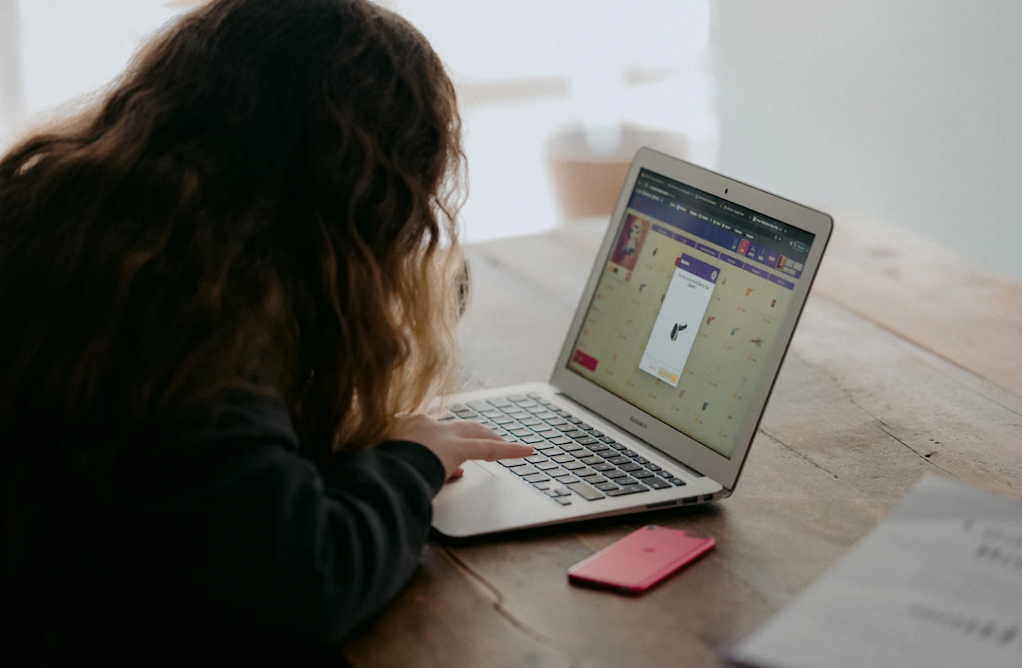Virtual learning and domestic violence

This has been a challenging year for us all; full of uncertainty, change and hardship. For children, their whole worlds have been turned upside down. For children who have been impacted by the trauma of domestic abuse, this time can be even more devastating. The global trauma of the pandemic of COVID-19 can compound the effects that domestic abuse has had on a child. Children are now spending more time at home, where there is potentially ongoing abuse, and spending less time with peers, healthy adults and in environments where they feel both physically and emotionally safe. Lifestyle changes made in response to COVID-19 might have disrupted a child’s established ways of coping with stress like extracurricular activities, socializing, and working. Further, they now have increased expectations and restrictions placed on them such as wearing a mask, staying 6ft apart, helping family members with technology, or providing childcare for younger siblings. As children are facing more challenges, access to their usual coping strategies are decreased.
For some children, the classroom might be an escape from the tensions at home. Days in the classroom are filled with structure and consistency, something children that have been impacted by domestic abuse desperately crave as their lives outside of school might be chaotic, unpredictable and frightening. Children that have witnessed domestic abuse that are learning virtually no longer have the benefits of:
- Knowing they are free from experiencing and/or witnessing abuse during the school day
- Knowing they are in a physically safe environment, and potentially one in which no one knows about the domestic abuse occurring at home
- Opportunities to build relationships and receive support from healthy role models such as teachers, coaches and counselors
- Opportunities for social support and extracurricular activities
- Access to consistent meals/snacks
Life can be hard enough as a child; the awkwardness, the changing hormones and social relationships. Not to mention, children and adolescents are at an age in which what their peers think of them is incredibly important. For children and adolescents who are experiencing domestic abuse in their home, feelings of shame, guilt, fear etc., might cause them to feel even more anxiety about what others might think of what happens in their home. Now, these children have to bring their teacher and peers into their home via Zoom. For children living in a home with domestic violence, that could be incredibly anxiety provoking. What are my classmates going to see? What are they going to hear? This can make it difficult for a child to concentrate on the lesson and complete their work. This might also look like a child “bouncing off the walls” or not being able to stay in their seat.
What can you do to support them?
- Model for children the balance between taking appropriate safety precautions while managing fear and anxiety with coping strategies. They are watching how you respond to stressful situations and will model their behaviors based on your reactions. It is important to reassure children that they are safe and it is the adults’ responsibility to keep them safe.
- Provide plenty of opportunities for children to express all of their thoughts and feelings. This can be done through dialogue, drawing pictures or acting it out. Support your children in identifying and labeling all of their feelings and validate their experience in a non-judgmental way.
- Provide children with choices and opportunities to have developmentally appropriate control over their day. Can they choose their breakfast or clothes? Can they decorate their school space in a way that makes them feel more comfortable?
- Provide regulating activities (especially for those children attending school on Zoom): sitting on an exercise ball instead of a chair, sensory play or allowing them to have a stress ball, fidget spinner or play dough while they listen to a lesson. Incorporating these activities into daily routines outside of school hours can be helpful as well.
- Provide plenty of opportunities for physical activity. This is important for all children, but especially those attending school on Zoom. Giving them short breaks for jumping jacks, a dance party, a walk around the block or kicking the soccer ball in the back yard will improve emotional regulation, concentration and the ability to learn new material.
Written by Charlotte Weatherford, MA, LPC Associate, Women’s & Children’s Therapist at Genesis Women’s Shelter & Support.
